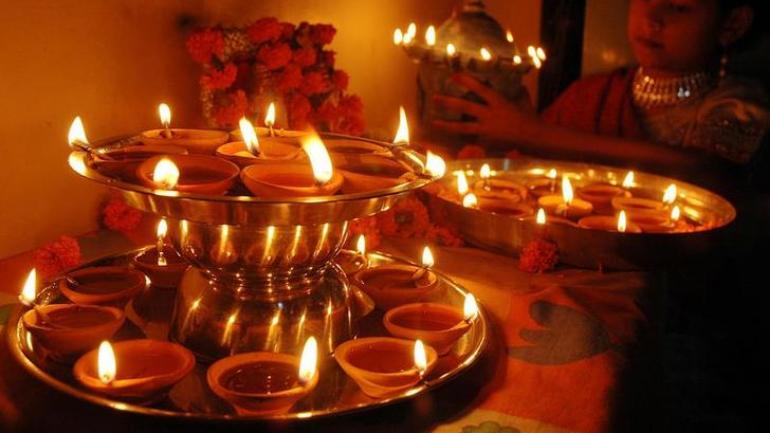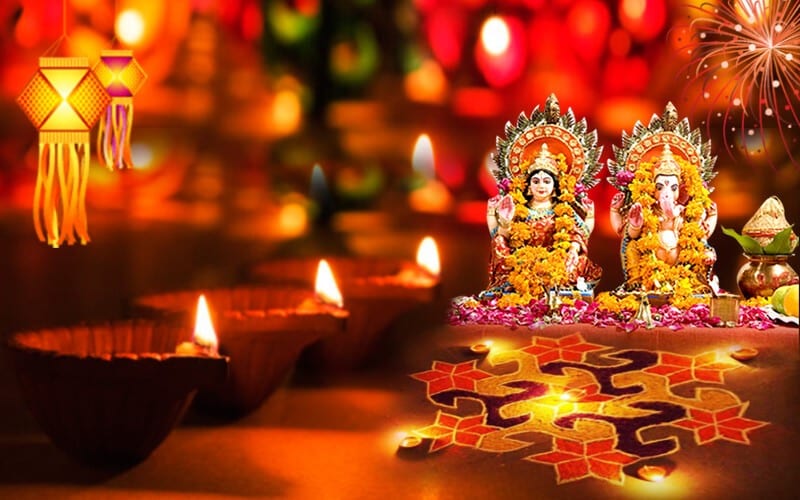Victory of Light over Darkness: The Indian Festival of Diwali
TRANSCEND MEMBERS, 12 Nov 2018
Dr Ravi P Bhatia – TRANSCEND Media Service
12 Nov 2018 – Diwali or Dipavali (Sanskrit for a row of lamps) is one of the most popular festivals that falls in the Indian month of Kartik — in the solar calendar year between the months of October to mid November on the Amavasya (new moon) night. The name of the festival also comes from the word Diya, which means earthen lamps that light up temples, homes, public places, offices or business centres.
The festival signifies a spiritual victory of light over darkness, good over evil and knowledge over ignorance. Diwali is celebrated not only by Hindus but also by Sikhs, Jains and a section of Buddhists. The Indian diaspora also enthusiastically celebrates it in the countries that they are living in. Occasionally, some well known public monuments oversees are also covered with thousands of electric lamps to provide light, joy and religious fervour to the Indian community.
Hinduism and Buddhism have travelled to many foreign shores, hundreds of years ago — Nepal, Sri Lanka, Burma (Myanmar), Thailand, Indonesia, Cambodia, Vietnam, China, Japan and a few other eastern countries. Surprisingly there is also a religious connect between South Korea and India which has been fortified by the arrival of the First Lady Kim Jung-sook to India.
According to Korean legend, an Indian princess from Ayodhya (birthplace of Lord Ram) had married King Suro of their country several hundred years ago. The First Lady Kim has come to Ayodhya in the northern Indian state of Uttar Pradesh (UP) on 6 November to lay the foundation stone of the memorial of the Indian princess who is now known by the Korean name of Queen Heo Hwang-ok. The Queen is known by the Indian name of Queen Suriratna.
The First Lady looked charming in the Indian sari that she was wearing as she addressed the gathering on the occasion along with the Chief Minister of UP. She has left India but the spiritual memory of her visit will last not only up to this Diwali that falls on 7 November, but also for many more Diwalis in the coming years.
The festival signifies as indicated above, victory of Light over Darkness as well as good over evil. The world needs such occasions in this violence-prone troubled contemporary times.
______________________________________________
Dr Ravi P Bhatia is a member of the TRANSCEND Network for Peace Development Environment, an educationist, Gandhian scholar and peace researcher. Retired professor, Delhi University. His new book, A Garland of Ideas—Gandhian, Religious, Educational, Environmental was published recently in Delhi. ravipbhatia@gmail.com
This article originally appeared on Transcend Media Service (TMS) on 12 Nov 2018.
Anticopyright: Editorials and articles originated on TMS may be freely reprinted, disseminated, translated and used as background material, provided an acknowledgement and link to the source, TMS: Victory of Light over Darkness: The Indian Festival of Diwali, is included. Thank you.
If you enjoyed this article, please donate to TMS to join the growing list of TMS Supporters.

This work is licensed under a CC BY-NC 4.0 License.

